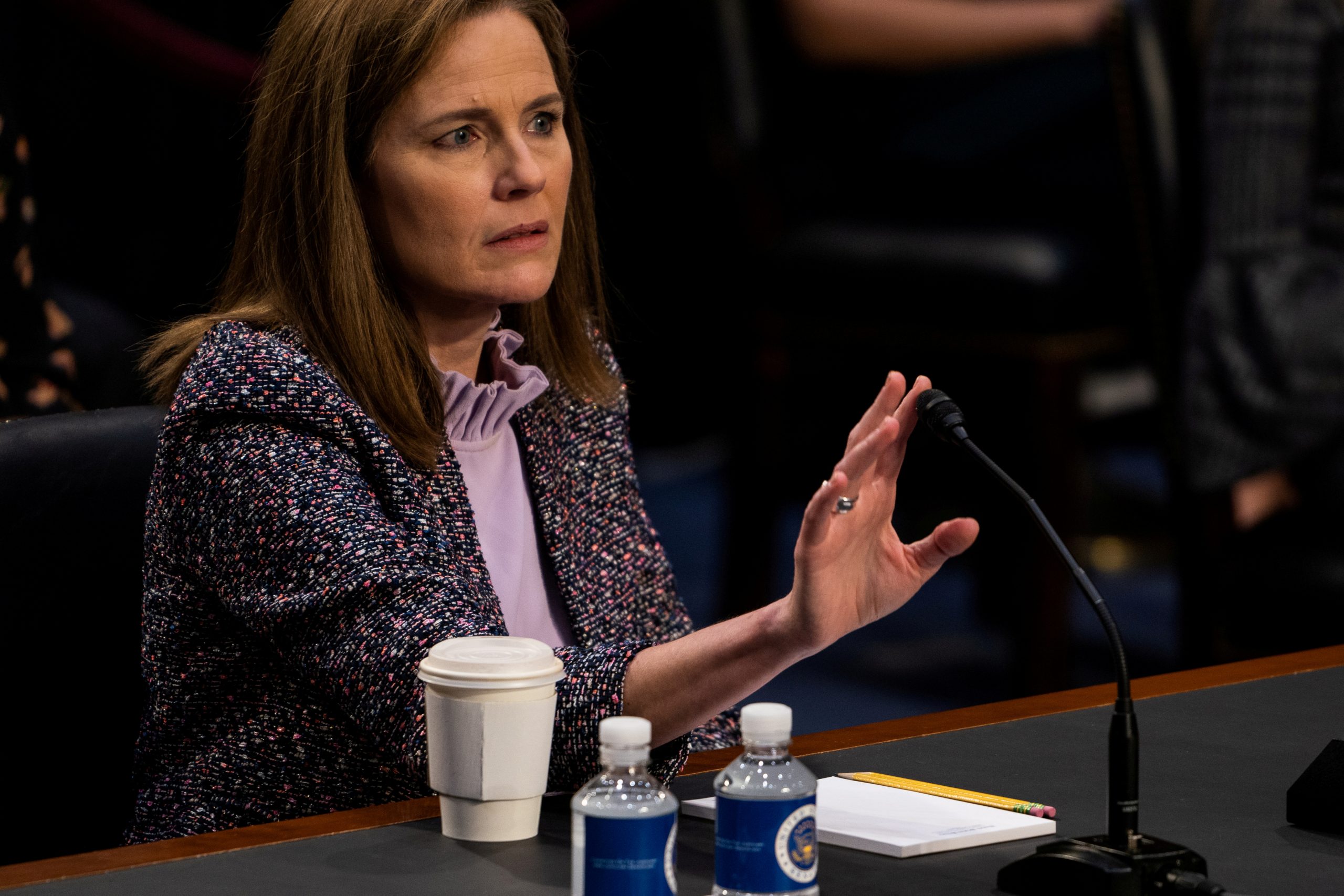The Republican-controlled U.S. Senate on Sunday plans to move closer toward a final confirmation vote on President Donald Trump’s Supreme Court nominee, Amy Coney Barrett, on Monday, just over a week before Election Day.
With Republicans controlling the chamber 53-47 and no indication of an internal revolt against the conservative appeals court judge replacing liberal Justice Ruth Bader Ginsburg, Barrett looks almost certain to take up a lifetime appointment on the bench over universal Democratic opposition.
One of two Republican senators who had opposed the rushed confirmation process, Lisa Murkowski of Alaska, said on Saturday that she would nevertheless vote to confirm Barrett.
“I have no doubt about her capability to do the job and to do it well,” she said.
Republicans are planning a preliminary vote on Sunday afternoon to end debate on the nomination, teeing up the final vote that is likely to take place on Monday evening.
No nominee to the Supreme Court has ever been confirmed by the Senate this close to a presidential election. More than 50 million ballots have already been cast ahead of Election Day on Nov. 3.
With Barrett on board, the Supreme Court would have a solid 6-3 conservative majority that could last for years. In the short term, Barrett could weigh in on voting cases involving the Trump campaign before or after Election Day.
Trump has said he believes the Supreme Court will decide the election’s outcome and has made clear he wants Barrett on the bench for any election-related cases.
Barrett is also likely to participate in the Nov. 10 oral arguments in which Trump and fellow Republicans are asking the court to strike down the Affordable Care Act, the health reform law known as Obamacare.
A favorite of Christian conservatives, Barrett frustrated Senate Judiciary Committee Democrats during her confirmation hearing this month by sidestepping questions on abortion, presidential powers, climate change, voting rights, Obamacare and other issues.
Democrats boycotted the committee vote on Thursday that advanced the nomination to a final vote on the Senate floor.
Barrett, nominated on Sept. 26 to succeed Ginsburg, has criticized previous rulings upholding Obamacare but said during her confirmation hearing she has no agenda to invalidate the measure.
Democrats were incensed that Republicans moved forward with Barrett’s confirmation process so near an election after refusing in 2016 to allow the chamber to act on a Supreme Court nomination by Trump’s Democratic predecessor, Barack Obama, because it was an election year.
Republicans are hoping Barrett’s confirmation can give a boost to Trump and incumbent senators in the party facing tough re-election fights.
Barrett, 48, has been a federal appeals court judge since 2017 and previously was a legal scholar at the University of Notre Dame in Indiana.
(Reporting by Lawrence Hurley, additional reporting by Richard Cowan; Editing by Scott Malone and Grant McCool)
























